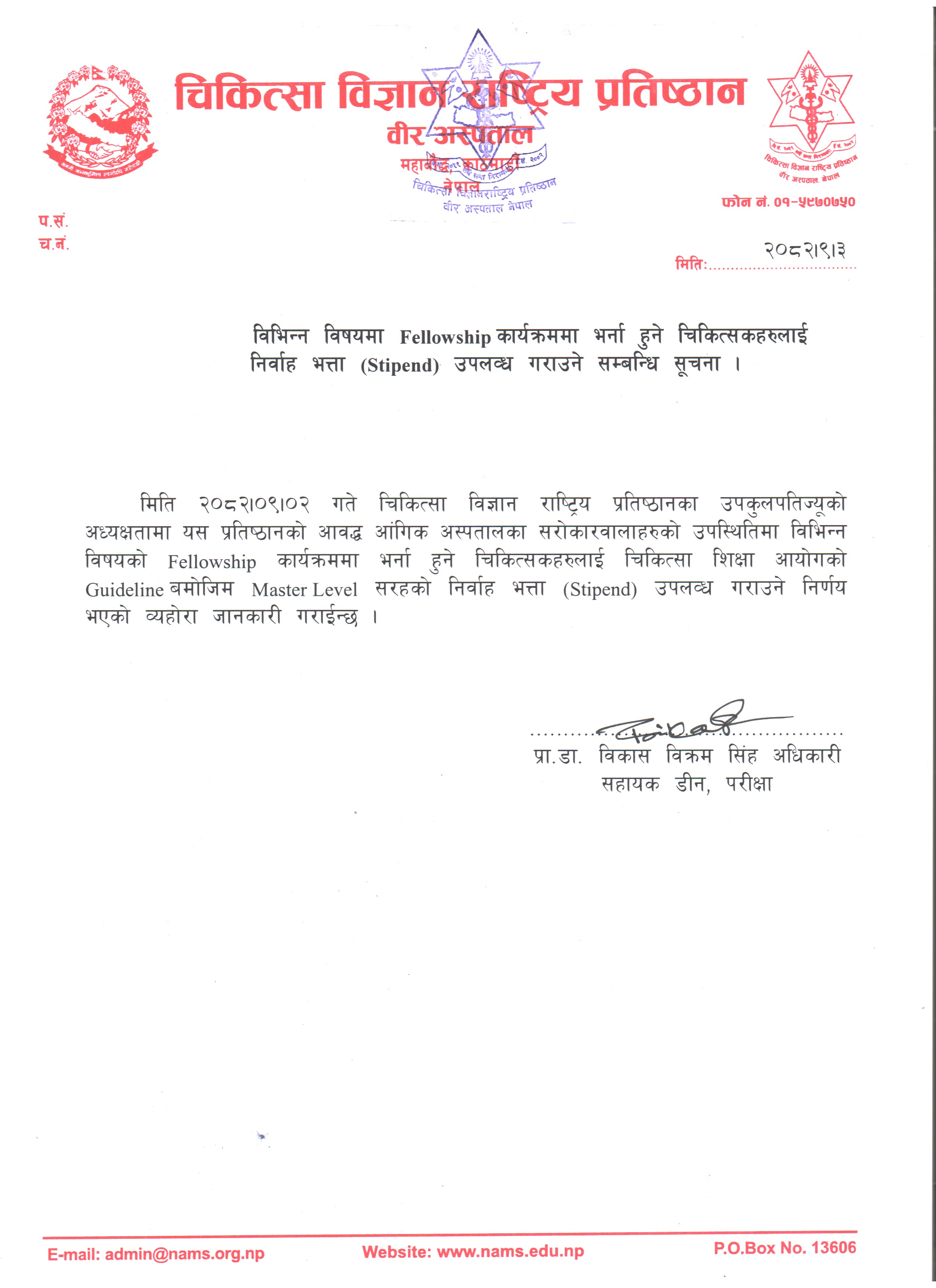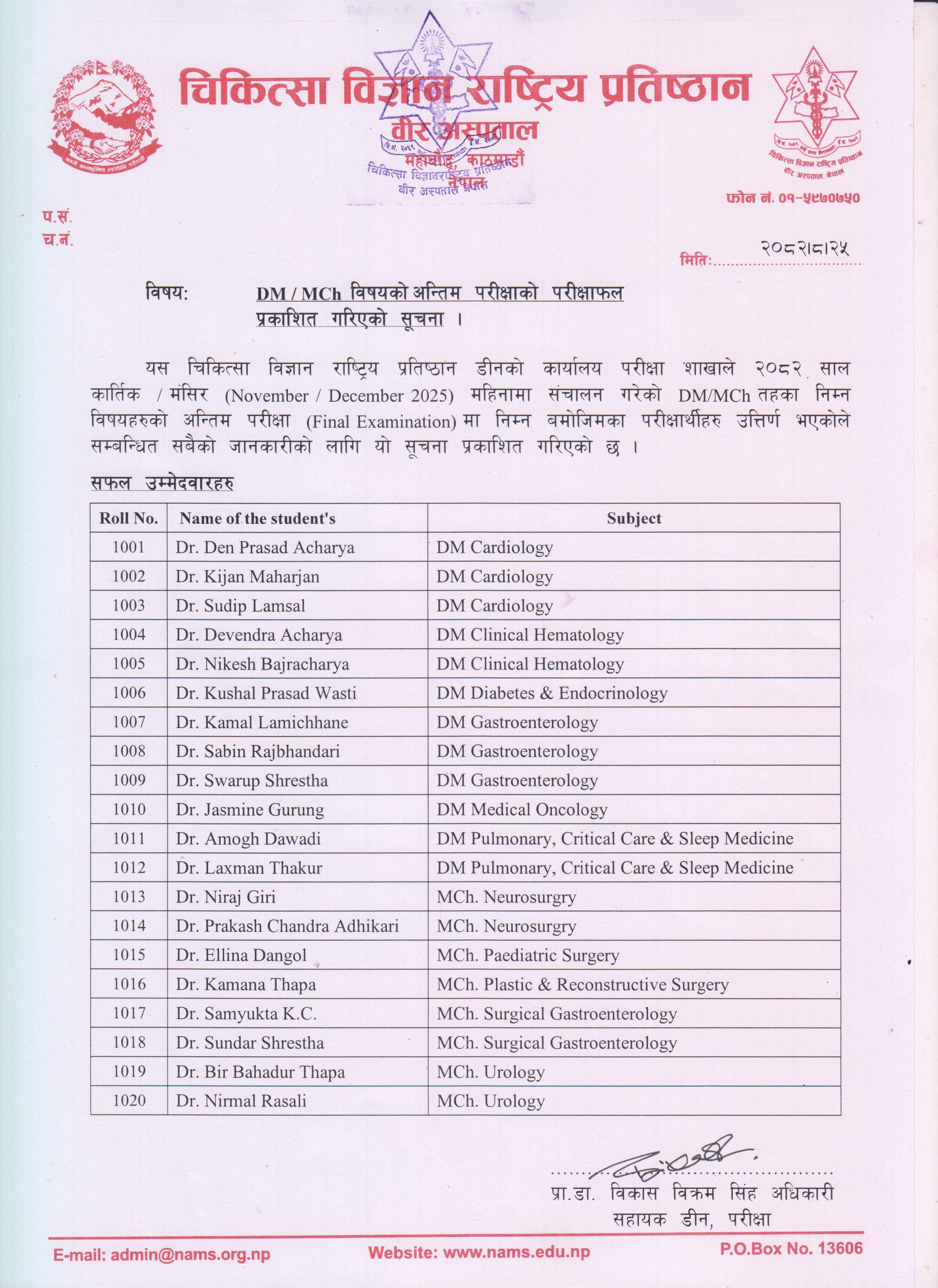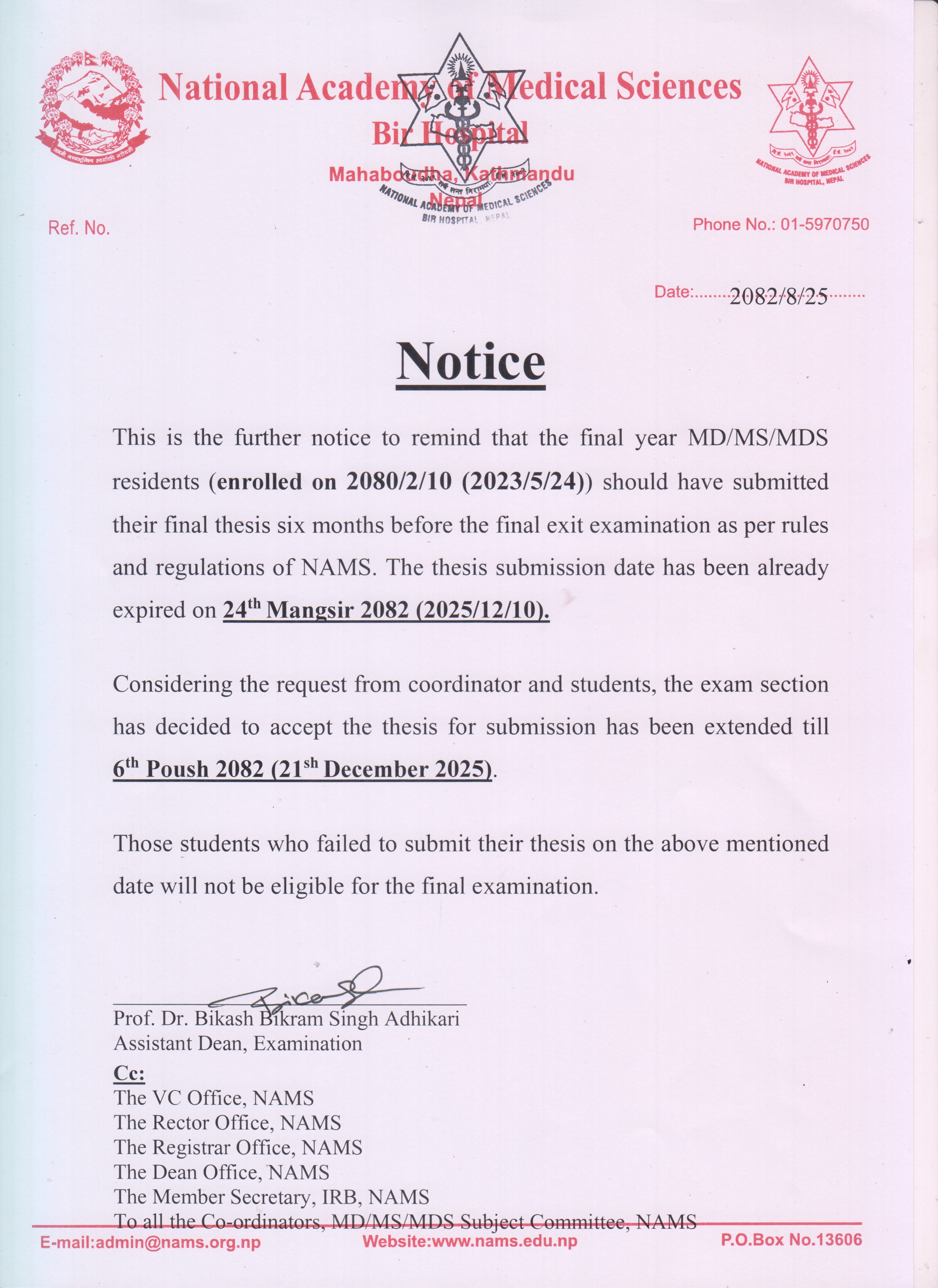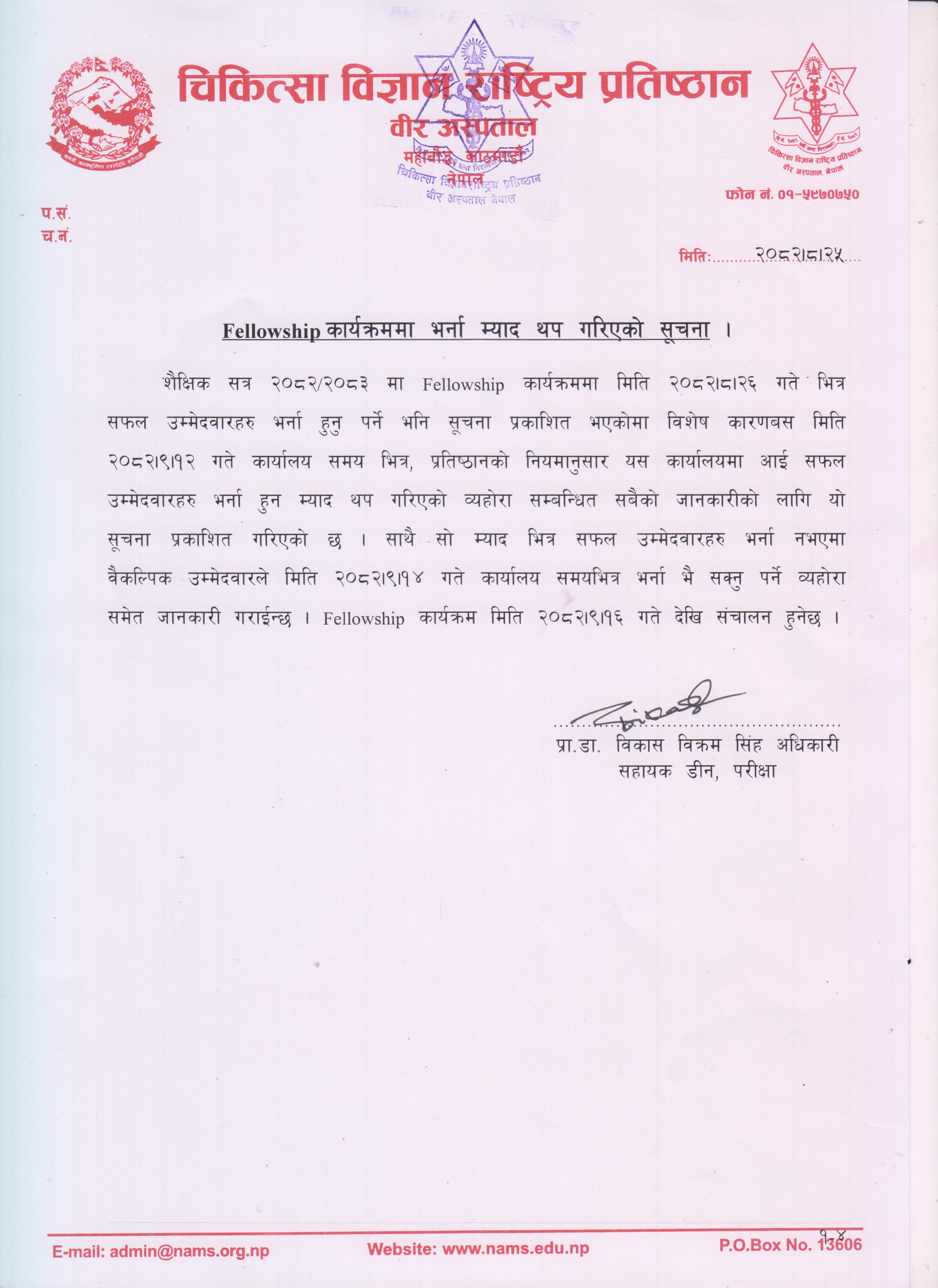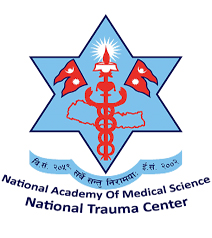
-
Saturday - December 20, 2025
admin@nams.org.np - Hospital Data
-
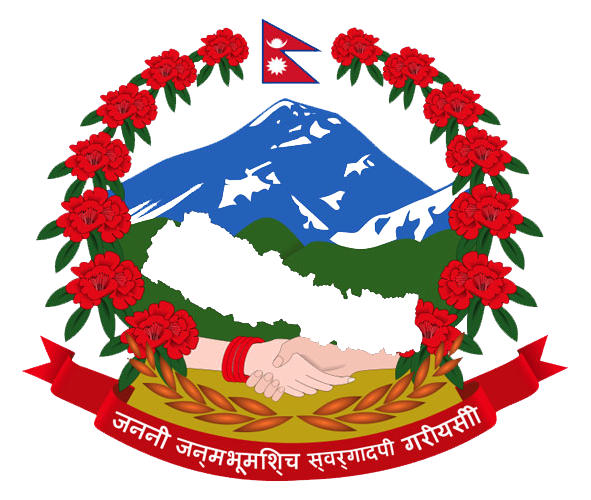
Recent updates :
सूचना
DM/MCh Final Result
Thesis Submission Date Extended
Date Extended for Fellowship Admission 2082
Fellowship Entrance Exam Result 2082
Fellowship Entrance Exam Notice-2025
सूचना
सूचना
Thesis Submission Notice
Notice for MD/MS Supplementary Examination Result
Orientation Program for newly enrolled 2082/83 batch DM/MCh
सूचना
Notice of Admission open for Fellowship program 2082/2025
Final Examination notice of DM / Mch
MD/MS/MDS Final Examination Result
AAC 13th Batch Entrance Exam Result
Notice For Anesthesia Assistant Course Entrance Exam
MD/MS/MDS Final Practical Exam-2025
NAMS Health Research Award-2025
Anesthesia Assistant Course मा विद्यार्थी भर्नासम्बन्धी सूचना
MD-MS-MDS- Final Exam Notice - 2081 (2025)
DM_MCh Final Result - 2081 (2025)
Fifth Convocation 2081 (2025) Notice and Form(English form are only for Foreigner Candidate's)
DM/MCH Clinical Practicle Exam Routine
Asst. Prof. in Speech and Language Pathology
Asst. Prof. in Audiology
BSLP उम्मेदवारहरुकाे अन्तर्वाता सम्बन्धी सूचना
Counseling
Class Commencing date
Contact Focal Person for BOVS Bhairahawa
करार सेवामा पदपूर्ति सम्बन्धी विज्ञापन रद्द गरिएको तथा दरखास्त दस्तुर बुझिलिने सम्बन्धी सूचना ।
DM / MCh. Final Exam
BASLP कार्यक्रम संञ्चालन गर्न करार सेवामा शिक्षक लिने सम्बन्धी सूचना
Fellowship Entrance Exam Result 2081(2024)
Result for Nursing Faculty
सूचना
Nursing Faculties Recruitment Written Exam Result 2081
Nursing Faculties Recruitment Written Exam Result 2081
Nursing Faculties Recruitment Written Exam Result 2081
Academic Activities Record Sheet
सूचना
Thesis Reminder Notice
घर भाडा लिने सम्बन्धी सूचना
सूचना
Fellowship गराईने विषयहरु र सिट संख्या
विभिन्न विषयमा Fellowship कार्यक्रममा भर्नासम्बन्धी सूचना
MD Supplementary Exam 2081
लिखित परीक्षा सञ्चालन सम्बन्धी सूचना फार्मेसी सहायक(पांचौ तह)
करार सेवामा कर्मचारी लिने सम्बन्धी सूचना फार्मेसी सहायक(पांचौ)
Final Thesis Notice
करार सेवामा नर्सिङ्ग शिक्षक लिने सम्बन्धि संशोधित सूचना
परिपत्र
एक वर्षे Anesthesia Assistance Course को अन्तिम परीक्षाको नतिजा
करार सेवामा नर्सिङ्ग शिक्षक फारम
करार सेवामा नर्सिङ्ग शिक्षक लिने सम्बन्धी सूचना Click To View Or Download Full Details
Anesthesia Assistant Course विधार्थी भर्ना सम्वन्धि सूचना
Click To View Or Download Anesthesia Assistant Course(AAC) Entrance Exam Result
सूचना
करार सेवाका लागि दरखास्त आव्हान सम्बन्धी सूचना
MD/MS/MDS Regular/Supplementary Final Examination Result
Orientation Program for MS/MSc MIT Students 2080/81 Batch
Orientation Program for MD/MS/MDS Residents 2080/81 Batch
Training in Medical Education for 2nd Year MD/MS/MDS Resident , MN 1st Year & MSc. MIT 1st Year Student
MD/MS/MDS तहको अन्तिम परिक्षा को कार्यक्रम तथा परिक्षा फोर्म भर्ने सूचना २०८०
उम्मेदवार सिफारिस सम्बन्धि सूचना
करार सेवामा कर्मचारी लिने सम्बन्धि
शैक्षिक सत्र २०८०/८१ प्रथम बर्षको अध्ययन कार्यक्रम सम्बन्धि सूचना
मेडिकल अफिसर उमेदवार सिफारिस गरिएको सूचना
प्रेस विज्ञप्ती
संशोधित परिक्षा कार्यक्रम प्रकाशन गरिएको सूचना
Exam Schedule
!! Vacancy Announcement for ( Medical Officer and Staff Nurse) !!
.jpg)
